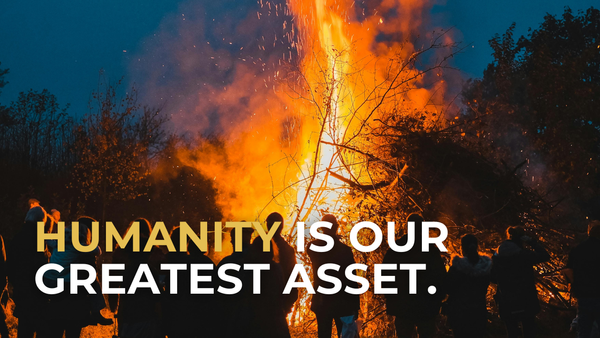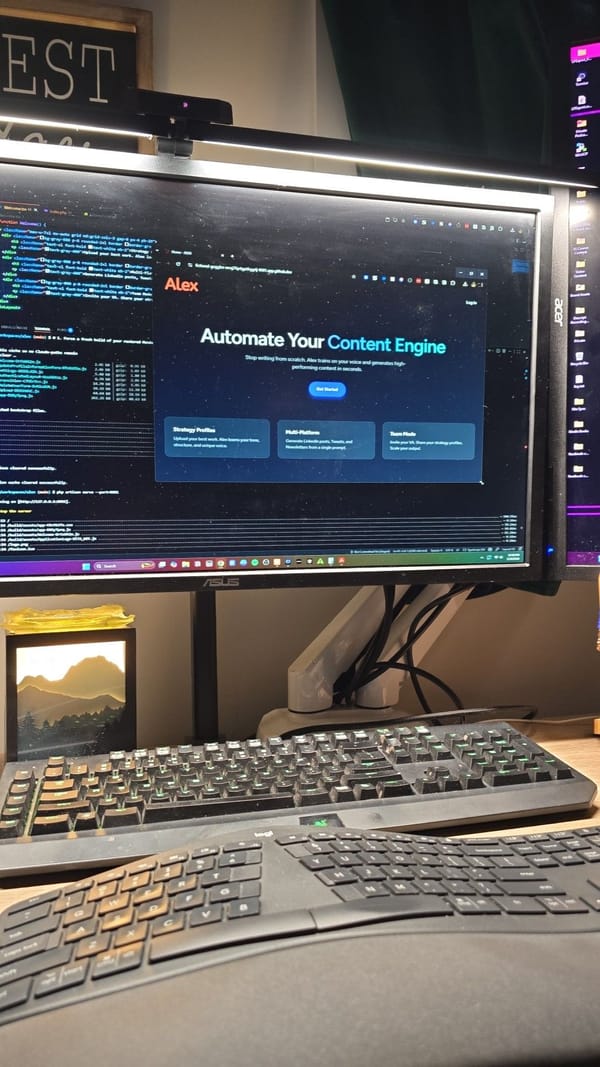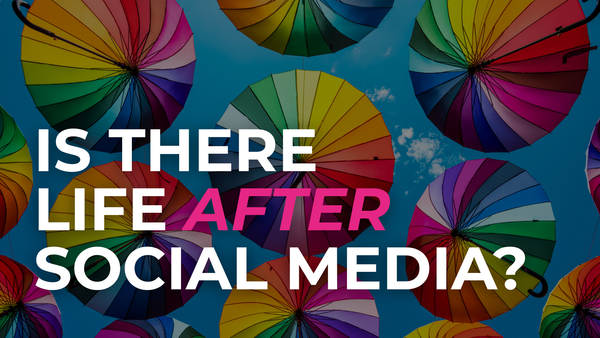Today, almost a third of the internet went down.
You're probably wondering why, what happened, and what we can do about it. So, allow me to explain.
What is Amazon Web Services anyway?
Amazon's "Amazon Web Services", or AWS, hosts about 30% of everything on the internet.
This includes the front-end - the pages you actually see with your eyes - as well as the back-end. The databases, scripts, files, and apps that power everything you see and do on the front-end of these pages.
AWS has datacenters around the world.
Think of these as where websites and online services "live". If we think of the internet as a country, AWS is a city, and that city has neighborhoods - these individual data centers.
There are other "cities" on the internet - other cloud infrastructure companies. Microsoft's Azure holds about 20%, and Google's Cloud Computing about 10%.
Then there are other smaller players like Oracle, IBM, DigitalOcean, and Linode, and tens of thousands of other "indie" hosts. They make up the remaining 40%.
But AWS is, by far, the biggest "city" on the internet.
What happened today?
AWS experienced a "database" error today in their Domain Name Server (DNS) records.
Specifically for their US-EAST-1 datacenter, located in Virginia. This serves most of the northeastern United States.
If we continue with the city metaphor, what this means is:
The roads in the US-EAST-1 neighborhood crashed.
The houses and the stores were all still there, but no one could get to them because the roads were gone.
There are two really important things to understand here:
- Having the same company control 30% of the land, roads, traffic lights, maps, city infrastructure, and buildings is *probably a bad idea*.
If this were a real country, and you woke up one day and realized that 30% of the entire country was actually located inside of one company town ruled by a private board of directors only interested in making money for shareholders, you would not be okay with this.
We have somehow allowed this on the internet without second guessing it. Hopefully, that is beginning to change. - The owner of this "city" has now made himself visible politically, which makes him and all of his assets a liability.
Everything he owns is now a potential target for political action in some way. That is why there was immediate suspicion this morning that Russia or China may have been involved in this outage.
According to Amazon themselves, this is not the case.
But if you were Amazon - would you tell the world if that happened?
So, what can we DO about it?
De-platform your business.
Demand that the software and services you use move to other hosting options.
Local ones, perhaps with a Content Delivery Network (CDN) - which essentially separates the ownership of the ROADS from the ownership of the LAND.
Start learning tech skills.
Yes, even you.
It doesn't have to be much, but the more tech-savvy you can be, the more options you'll have for your business that don't rely on things like AWS and the tech they host.
All of the big marketing tools use AWS.
Kajabi, Thinkific, GoHighLevel, Kit... All of them. AWS marketed very heavily to marketing apps in their early days.
So every time you make your monthly payment to THEM, they hand some of it over to AWS, who then uses it to lobby against your best interests.
Kit alone spent $1.8M on AWS in 2023, according to their own published records.
📣 These services are not neutral.
Tech skills are not the only path to resistance, but they are definitely *a* path.
I believe that this is one of the most important things we can do right now.
If we can host our own tech, if we can manage our own websites, if we can use this technology to connect without needing them, then their power shrinks.
Did you know that you can host a website on your computer?
You probably shouldn't, and there are lots of easier solutions these days.
But there's very little difference between your computer, or even your phone, frankly, and AWS servers.
They use some different software, static IP addresses, and a handy little always-on connection... But you could do that to your computer right now.
The reality is, someone who can host a website on their own computer, in their house, is infinitely harder to take down than someone who puts their content out through Facebook or Substack or Kajabi or Kit.
Even if your internet service provider cancels your internet, there's always someone else willing to take your money instead. But you own the website, and the tech it is hosted on. And no one can take that away from you.
What to do now:
There are several things you can do now that you know this.
You can definitely try to learn some tech skills. Watch some online tutorials, practice basic web stuff, head over to Neocities to relive the early days of the internet and code your own website for the first time.
You can put pressure on the software you use to stop using these platforms. Email your marketing service providers and tell them that you don't want them on AWS anymore.
Tell them to use something smaller and more independent.
Tell them it is important to you, as a user, that your money isn't going to Amazon.
Tell them it is important to you that your tech is less vulnerable to these risks.
You can watch my workshop, Unsocialized: How next-gen leaders are growing for a post-social media world.
This workshop walks you through what has happened to social media, why it doesn't work the way it did, the actual functions it was serving, and how you can replace those functions elsewhere.
So that if and when you choose, you can step away from social media for good.
Or, you can take a bigger stand.
How would you like to not only get access to the Unsocialized workshop, but also:
- Every other resource we've ever created on marketing and growth, both on and off social media
- Weekly coaching and guidance from yours truly + other experts to help you implement, stay accountable, and be in community.
- A ton of other resources and tools, private community forums, etc.
And of course, the biggest game changer of all - The Commons marketing collective.
I've built the indie website and the platform socials.
I've built the email list and the marketing tech.
I'm building the audience for us.
All you have to do is submit the content to me, and I publish it and promote it for you - all leading back to you and your work.
We rise together, faster than we could apart, and you get to benefit from everything the indie-web has to offer without doing any of the tech setup or audience-building yourself.
The best part is, we're building it collaboratively. So unlike traditional platforms, focused on selling ads or gaining more clients and customers for themselves regardless of what you want...
... you get a say in how we build this.
It is yours as much as it is mine.
A managed co-op of marketing, where I created the structure and maintain the thing but you get to benefit from it and help direct it as it grows.
All of this is inside of Solo School.
And right now, until October 31, I'm looking for 5 people who want to join Solo School as part of the founding membership of our marketing collective...
... and save hundreds of dollars on membership, too.
While we're building the marketing collective, there will be early days without as much traction as we want to give your content. That's just how these things work.
But to say thank you for taking the chance and believing in our mission, you get to participate in it for life - for less than what 8 months of membership would cost if you went month-to-month.
Go here to check it out, ask questions, and enroll in one of the first five spots - before they're gone.
Whether you're able to join us or not, just know this one very important thing.
The internet is not a place, or a thing, that can be bought and sold.
The internet is technology that exists independent of any one corporation, or person, or policy, or special interest group.
The internet is all of us.
And if we're willing to develop some skills, to build community, to be okay with a bit of discomfort, a bit of friction, a bit of learning in order to make all of that not only possible but make it thrive?
They're powerless to stop us.
Tech skills are an act of resistance.
- Cheryl
P.S. If you have questions about the workshop, the program, or even just how to do any of this, reply to my email (if you are getting this by email) or drop a note to team AT soloschool.ca





